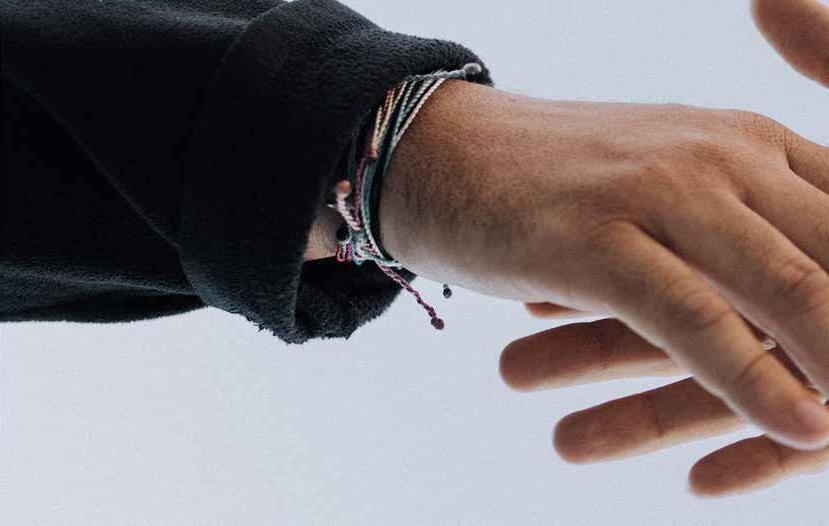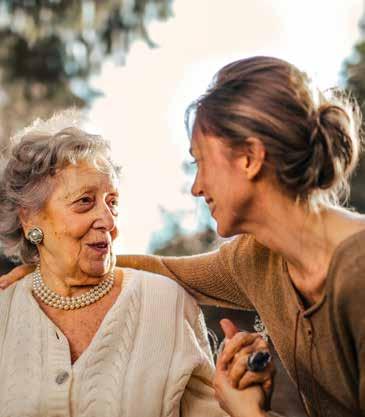
4 minute read
Being a volunteer during the pandemic
The situation we live in has been changing the way we are used to communicating, learn, and even how to behave outdoors. It has also worsened social inequalities. Due to the outbreak of the pandemic, all sectors were affected globally and were forced to take measures. Volunteering was no different. This sector was also heavily impacted and had to adapt differently according to the type of volunteer work.
The pandemic and its restrictions brought difficulties to help others considering that in-person volunteering activities can no longer be held, where the volunteer had to move around places and be in close contact with people to accomplish their assignment. To maintain the volunteer work, some organizations that couldn’t keep the activities that needed to be in person, adapted them to the digital form. This strategy was crucial for the continuity of some volunteering projects. Maria, a 19-year-old volunteer, says that the pandemic won’t discourage her from continuing to do what she enjoys: volunteering with animals. Andreia is new to volunteering, but she believes that all assistance is needed, especially now.
Advertisement
How volunteer work changed
With the elderly

The Portuguese organization V.O.U., which assists isolated elders in Porto, had to suspend the regular visits.
Instead, the volunteers work digitally. Weekly calls are now the only way to combat the elder’s isolation since they are a highrisk group.
Andreia is an 18-year-old Portuguese volunteer who joined an initiative between several Viseu colleges. She is an environment volunteer and she also assists the isolated elderly by a phone call or a video call. There are also donations of books, toys, clothes, and more. It is mandatory to use masks, gloves, and hand sanitizer. Andreia says, “There are a lot more isolated people who need basic assets, due to the economic decline”. She feels that, probably, the environment has improved because of a major disinfection concern. “Every honest and humble help that we provide is already gratifying”, shares the youngster.
Since the pandemic started, she has felt the obstacles of it every day: “It is harder to help, with all the rules and obstacles that we have, but carefully we can reach to someone who needs our help”.
When it comes to donations, they are made in every college and, after that, they are taken to the Catholic University of Viseu to disinfect everything.
With animals

Volunteering at shelters also had to adapt. However, this kind of volunteer work didn’t have much of an impact. A mask and social distancing were the only rules for the project to go on. And there aren’t excuses when it comes to working and helping animals. Cleaning their shelter, feeding them, and keeping them company are some of the tasks volunteers do when helping animals.

Maria Cerqueira is a 19-year-old Portuguese volunteer. She and her mother do volunteer work at an animal-friendly organization in Chaves for two years. Maria says, “When the pandemic came, I had to stop going to the shelter for at least three weeks”.
Maria Cerqueira
She thought that volunteering would be heavily affected by the situation. She was not wrong. “The girl in charge of the organization gave us a certificate that allowed us to circulate since it was necessary to feed the dogs and clean their shelters”, says the youngster. Maria and her mother feel the impact of the pandemic every weekend when they do volunteer work. “It is hard to wear the mask for three hours or more, not to be able to kiss and hug the dogs as we used to”. She thought it would be worst, but at the shelter, volunteering continues with a mask and social distancing.
Maria claims, “I do what I like, which is being with animals and there’s not a pandemic that will prevent that”.
Portuguese volunteer A Portuguese foundation, “Fundação Eugénio de Almeida”, released a guide to be a volunteer during the pandemic, where it gives advice, several precautions to take when doing volunteer work, and steps to follow to be a volunteer:
1. Remember to sign a contract with the volunteer organization and clarify your tasks and schedules. 2. Meet the coordinator (the person that supports your volunteer work) of the volunteer program. You must go to him/her in case something goes wrong. 3. Do the training suggested. It can only be a meeting with the coordinator to get to know better, the organization and the project’s rules. The training depends on each project of volunteering. 4. You must always use equipment of individual protection, such as masks and gloves. Remember to practice social distancing and to comply with the rules. Do not share personal objects like a cellphone, or a water bottle. If you have any symptoms during the volunteer work, you must contact your coordinator and follow his or her instructions. 5. Try to give feedback to the organization about your performance, how it is going, the agonies and the needs, but also your achievements. 6. Take care of yourself. Adopt measures for your self-care, to be able to help the ones who need it the most. Talk with others, do physical exercise, and plan your daily routines.
Cláudia Cardoso
Sources: https://www.publico.pt/2020/12/05/ p3/noticia/voluntario-tempospandemia-1941639 https://www.fea.pt/images/ voluntariado/6991/Guia%20Ser%20 Volunt%C3%A1rio%20em%20tempos%20 de%20Covid.pdf










